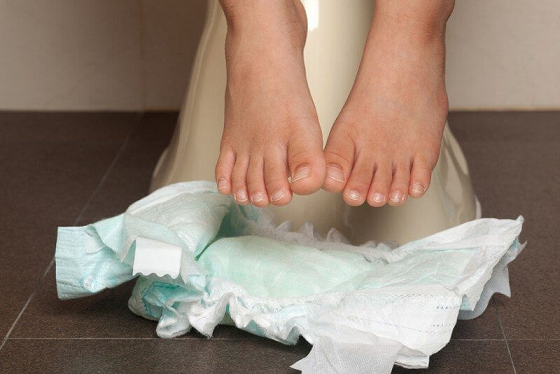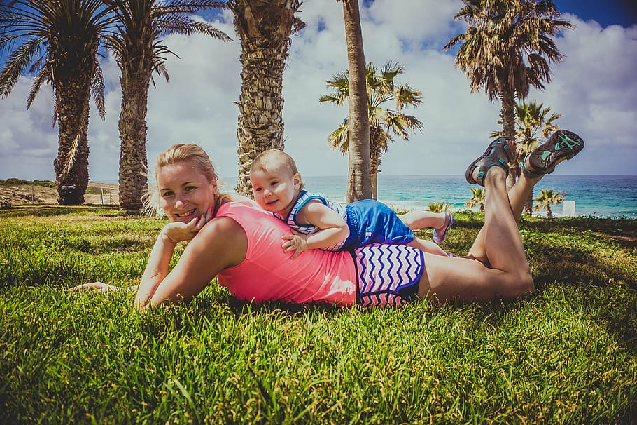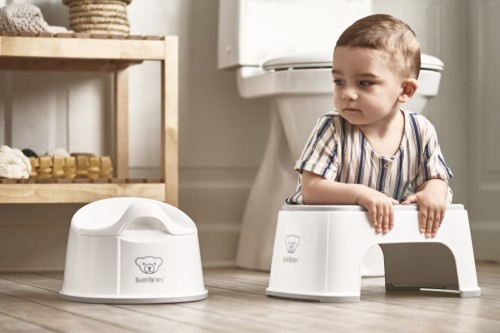Why A 10 Year Old Is Still In Diapers?

Babies are expected to stop wearing diapers at the age of four. However, some babies stay in diapers up to the age of ten. While it is uncommon and unexpected, there are various reasons why a 10-year-old can still be in diapers.
Older babies with bedwetting medical issues stay on diapers longer. In other instances, some older babies love the feeling of wearing diapers, and it is okay as long as the parent can afford it.
It is essential to understand that potty training is different for each baby. This way, you will not be worried if your child still wears diapers at ten years.
Why Would A 10-year-old Still Wear Diapers?
Having a 10-year-old still in diapers is not the norm, but it should not be a cause of distress. Here are some reasons why some 10-year-olds can still be in diapers:
Bedwetting
For some babies, bedwetting goes beyond potty training. In that case, a 10-year-old who is still bedwetting can still be in diapers, and in such instances, it is advisable to see the doctor. Sometimes bedwetting at older ages is a medical condition. It could be an emotional condition, medical, or even genetics. If you are a bed wetter, there are high chances that your children will take that from you.
On the other hand, some 10-year-olds will randomly wet their bed for no apparent reason. Because it is embarrassing for them, a nighttime diaper is an excellent way to help them deal with the issue.
Some Children Love Diapers.
It is prevalent that some children, especially boys, hold to diapers for love and comfort. You see how girls hold on to their dolls; some boys love their diapers. Having to buy diapers for a ten-year-old boy can be challenging, but the best thing you can do is support your child through the transition.
Do not shame them because it can damage their self-esteem. The journey can be frustrating, but hold their hand until they can make the jump.
Your Child is Suffering from Anxiety
Children suffering from anxiety struggle with using the toilet, especially at night or in public places. Some kids are afraid of the sound produced by a flushing toilet. Other times, they are so scared of the dark, and therefore instead of waking up to pee in the bathroom, they opt to pee in bed.
If your child is struggling with anxiety, identify their triggers around using the toilet and help them get over it.
Children with Smaller Bladders
Children with smaller bladders cannot hold urine for a long time. Therefore, they will need to use diapers on long flights or long-distance car rides. Therefore, if your child visits the toilet frequently and has frequent accidents, it is vital to seek medical attention because diapers are only a temporary solution.
The Child is Going Through A Transition
Significant life transitions can create anxiety in your child, which might trigger bedwetting. Therefore, if you are moving locations, going through a divorce, changing your child’s school, or even adopting a child to your house, do not be surprised if they have to use diapers at age 10.
The understanding that a child’s development reverts during stressful times will help you manage your worry. Put them on diapers, and they will be back to normal within no time.
How To Get a 10-year-old to Stop Using Diapers
Depending on why your ten-year-old is still in diapers, you need to help them get it right using the bathroom. Here are some tips to help them:
Avoid shaming and punishing
Buying diapers for a ten-year-old is expensive and can be frustrating, but punishing increases anxiety and worsens the situation. Make it a normal conversation and praise them for the days they did well.
Remind your kid to take bathroom breaks
Some kids experience these accidents because they do not visit the bathroom as frequently as they should. If your child waits until they are pressed to the brim, they will likely suffer an accident. Remind them to use the bathroom as the last thing before bed to avoid nighttime accidents.
Accompany them to the bathroom
If your child is scared of the auto-flush toilets, help them get over the fear by locking and unlocking the bathroom and showing them that the noise cannot harm them.
Also, if they suffer most accidents at school, consult with the teacher about the toilet rules and see if something can be done to help your child.
Bathroom reading
It is crucial to help your kid understand how their body works. Knowledge is power, and understanding how their body works can help them get over the diapers. You could use illustrations like filling a balloon with water and showing them how they should pee to release themselves.
What Age to Stop Diapers At Night?
Dropping diapers at night is a significant milestone in your child’s development. By the time your child stops wearing diapers at night, it means that they are not diapered during the day either. This milestone marks the end of buying diapers which saves you a lot of cash.
Some babies are entirely potty trained between 18 to 30 months, while others are still in diapers at 4 years old. This tells you that babies are different, and you should walk at your child’s pace.
Before you put your baby to sleep without a diaper, they should be off diapers during the day. After ticking that box, start watching for signs showing that your baby is ready to ditch nighttime diapers.
See also Diapers that Change Color When Wet
Signs Baby is Ready to Stop Wearing Diapers at Night
Waking up dry
The first sign that your baby is ready to sleep diaper-free is when they start waking up dry. While it takes training for some kids, it happens automatically for others. Watch out for about a week if the baby will still wake up dry for the best results. After a week, take the risk and tuck them in without a diaper.
Successful daytime potty training
If your baby no longer wears diapers during the day and does not pee on themselves at all, it is a good sign that they are ready for nighttime potty training.
If you decide to start the journey, explain to your child that they will no longer be sleeping in diapers, and they cannot pee in the middle of the night unless they wake and use the toilet or the potty. This way, your baby will be psychologically prepared.
They communicate that they do not want to continue wearing diapers
Babies are tiny humans, and they understand their bodies more than you can imagine. Therefore, if your baby calls you at night to use the potty or tells you they want to stop wearing diapers, listen to them, and ditch the nighttime diaper.
If they can wake up at night to pee, it is an indication that their body is developing, and they have learned not to continue sleeping through a sensation.
For the initial attempts, use a mattress protector or waterproof bedsheets. This way, in case of accidents, the mattress and beddings will not get spoilt.
At this stage, your child should be able to reach the toilet or potty easily at night. You can decide to put the potty in their room so that they do not have to walk to the bathroom. If they are afraid of the dark, put a night light on their room.
Last but not least, ensure that your baby pees before going to bed.
See also Preemie Diapers vs Newborn
FAQ on 10 Year Old Still in Diapers
Can 10-year-old Wear Diapers?
Ten-year-olds with physical or neurological conditions that affect their bladder control can use diapers. In other instances, the child is not ready for potty training or is afraid to use the toilet for different reasons.
Is it Normal for 11 year old to Wear Diapers?
Yes, it is normal for 11-year-olds to wear diapers. This case, however, is more widespread for boys than girls. If your child falls in this category, talk to them and understand why they love to be in diapers and help them with the transition.
How Do You Change a 10-year-old’s Diaper?
If the child is not sick, they are old enough to change their diapers. However, if they cannot, start by taking off their trousers and underpants. Untie the diaper and carefully remove it. To prevent diaper rash or irritation, proceed to wipe them and apply cream or powder. Lastly, slide in the new diaper and tape it.






